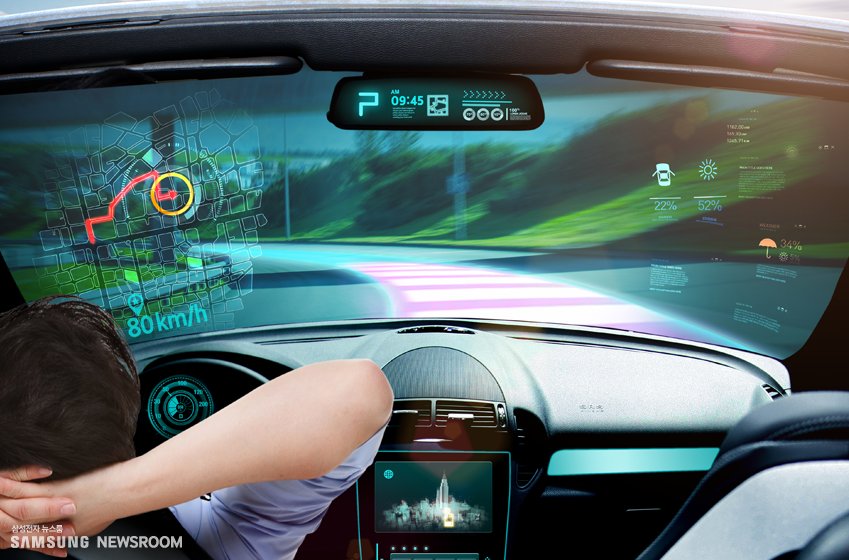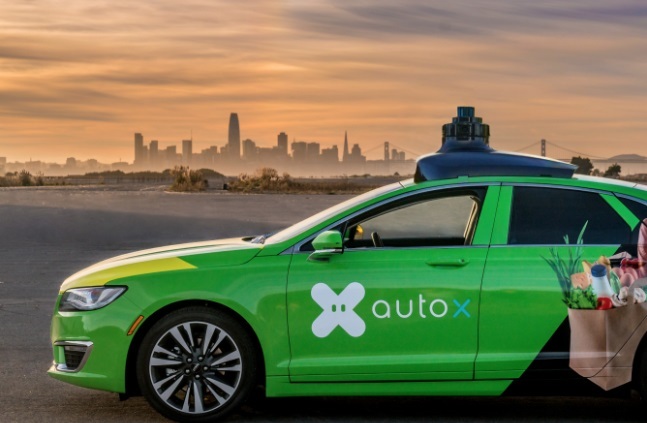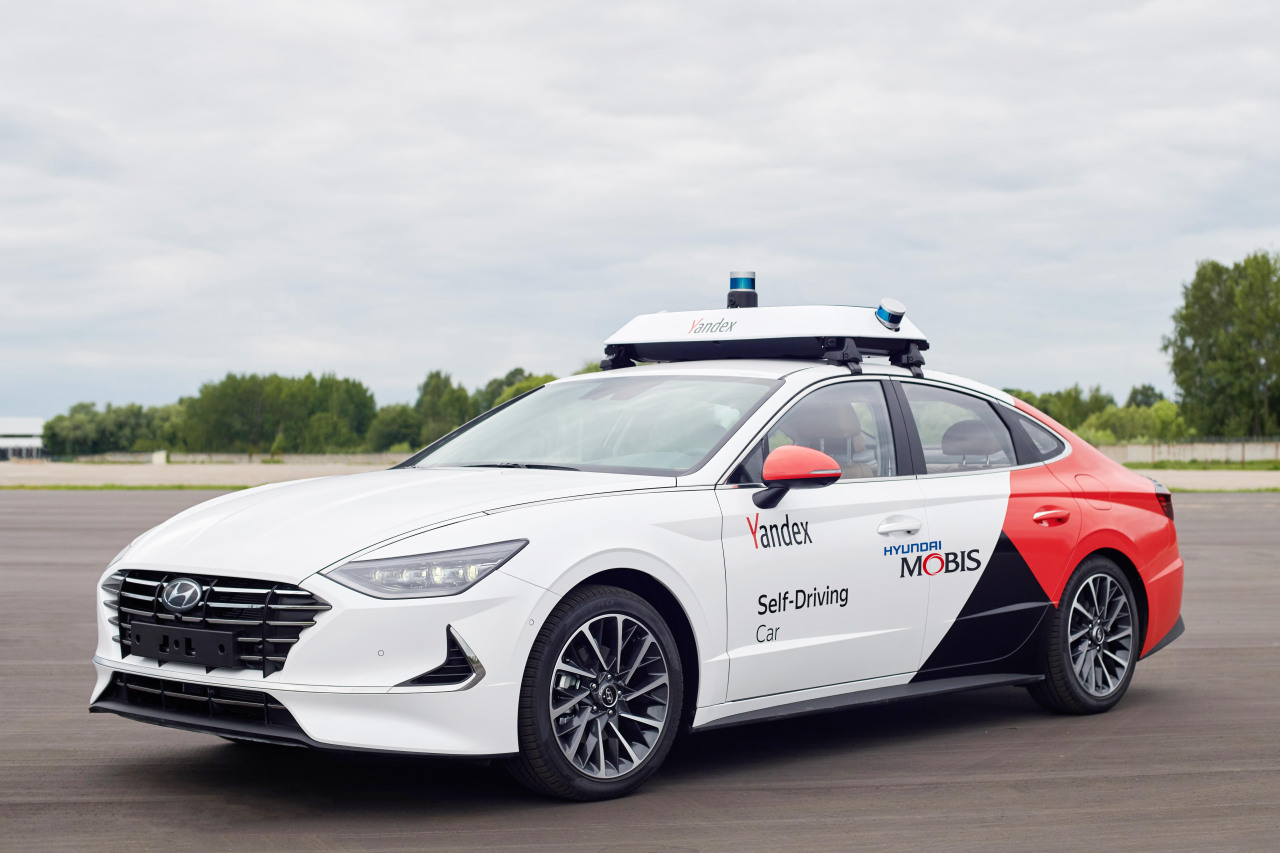[News Focus] COVID-19 reshapes global autonomous driving tech landscape
Non-US firms close gap with Silicon Valley while rivals sit idle due to pandemic
By Kim Da-solPublished : June 17, 2020 - 14:06

Amid the heated competition to develop autonomous driving technology, US automaker General Motors’ self-driving technology unit Cruise made an unexpected announcement last month that it will lay off workers to tighten its belt during the COVID-19 pandemic.
Cruise CEO Dan Ammann sent an email to staff that layoffs of some 150 out of 1,800 workers will include an engineering team in California that works on Lidar, a critical technology for autonomous driving which uses pulsed laser light to sense objects.
The company has been a promising US startup with the industry’s top level self-driving technology development, unveiling Level 5 autonomous electric vehicle earlier this year. It has received some 8.5 trillion won ($7.1 billion) from global investors like Honda and SoftBank since its establishment in 2013.
But it is not the only firm in the autonomous driving industry that has seen funds dry up due to the latest virus outbreak.
Market insiders are of the view that the goal of global technology and automotive companies to commercialize driverless cars by 2020 has been delayed and the development of related technology will take longer than expected, as the COVID-19 pandemic has made it even more difficult.
Market leaders struggle to stay afloat
Prominent self-driving tech and auto parts startups in the US that are still in the nascent stage -- such as Zoox, Kodiak Robotics and Velodyne Lidar -- have already announced plans for additional layoffs due to capital shortage.
Car-sharing company Lift has already cut over 1,000 employees, while a virtual driver system and high-definition map develop Argo AI has infinitely postponed its test drive planned in Washington.
Automotive and technology conglomerates are no exception.
US carmaker Ford said it will delay its plan to launch an autonomous vehicle service until 2022, as the COVID-19 pandemic has prompted it to “rethink its go-to-market strategy.” It has also postponed tests of self-driving cars in major US cities including Miami and Austin.
In its latest earnings announcement, Ford reported a $2 billion loss in the first quarter compared to a profit of $1.1 billion in the same period last year.
The company forecast that losses in the second quarter will widen as the COVID-19 pandemic continues to disrupt its business.
German automaker Audi has also cited “insufficient time” for adding its Level 3 driver assist program called Traffic Jam Pilot system to its A8 sedan in Europe or globally, which is due for a face-lift next year.
Firms outside US rapidly catch up
Autonomous vehicles are a top agenda with a development priority in both the US and China.
Since fully-autonomous driving technology is still being developed and hard to achieve due to complexities of navigating real-road situations, conducting rounds of test drives and rolling out a pilot program is fundamental.
While US companies have been halting their tests because of the virus pandemic, Chinese startups are accelerating their plans.
Chinese startup AutoX, which has opened the country’s largest data center for self-driving cars in Shanghai, began deploying a fleet of 100 robo-taxis in the city in April.
AutoX is just one of several Chinese firms aiming to close the gap with Silicon Valley, doubling their test miles and bringing fresh funds as US rivals sit idle.

“Commercialization of autonomous driving largely depends on how much data the company has accumulated through road tests. Although the US is a step ahead in terms of the level of technology development, China can always step up through multiple trials after road tests,” said professor Sunwoo Myung-ho of ACE Lab from Hanyang University.
China’s IT giant Baidu recently ran a test event of its self-driving robo-taxi targeting average citizens. The company has been working on self-driving cars for seven years without turning a profit, but have been rapidly scaling up its ambitions.
It has completed the construction 13,500-square-meter Apollo Park in Beijing, the world’s largest test site for both autonomous driving and vehicle-to-infrastructure communication.
Despite competition both globally and with domestic rivals such as AutoX and WeRide, the Beijing-based company ranked fifth for the first time among autonomous driving technology companies in an annual survey conducted by Navigant Research earlier this year -- only after Google’s autonomous driving unit Waymo, Ford and GM’s Cruise.
Besides China, Russia’s largest IT firm Yandex ranked eighth as the second-highest non-Chinese nor non-US company on this list, trailing Volkswagen on seventh.
Until last year, Yandex has been listed outside the top 20, but buoyed by the Russian government’s support and collaborations with global firms, Yandex has been making progress, market insiders said.
Yandex, which currently dominates the Russian local digital pay, ride-sharing, food delivery market, joined hands with South Korean auto parts maker Hyundai Mobis in March last year, by inking a memorandum of understanding for autonomous driving technology development.

In July last year, it unveiled a robo-taxi based on Hyundai Motor’s Sonata sedan. Under a plan to expand the testing of jointly developed control systems for driverless vehicles to other regions, the two firms conducted a test ride of 100 driverless cars on public roads in Moscow last year.
Where does Korea stand?
According to the Navigant Research survey, Hyundai Motor Group’s joint venture with Ireland-based autonomous driving tech startup Aptiv, formerly known as Delphi, ranked sixth among autonomous driving technology companies, advancing from last year’s 15th.
The two firms clinched a deal in September last year for a $4 billion JV to develop autonomous technology. They agreed to test-operate autonomous driving vehicles in 2022 and start mass-producing them from 2024, also aiming to run research centers in both the US and Asia.
While the local players have a long way to go, with only conglomerates like Hyundai Motor Group, LG Group and Samsung Electronics showing interest in autonomous driving technology and digital cockpits, the Korean government has unveiled a plan to invest 405 billion won by 2027 to foster the industry.
State-run Korea Agency for Infrastructure Technology Advancement announced its plan last month to run a Level 4 autonomous driving development from 2021 to 2027.
Level 4 driving automation allows a vehicle to operate in self-driving mode, although a human driver can still request control. But the car can handle the majority of driving situations independently.
Despite the government’s will to invest in the area, market experts voiced concern due to lack of auto parts manufacturing infrastructure here, as well as lack of a research workforce.
“Korea may be the global market leader in the finished car manufacturing sector, but when it comes to sensor or auto parts production, it is only at 30 percent level compared to autonomous driving technology leading countries like the US and Germany,” said Kim Jun-ki, who leads a vehicle safety division at Korea Automobile Manufacturers Association.
It is not just radars, cameras and Lidar, but other various kinds of sensors are also not being produced here due to the lack of technology, Kim said.
“Korea is 100 percent dependent on importing Lidar and our technology for camera recognition technology is still far behind to clearly read the face or objects on the road like in the real-world environments,” he said.
According to the Ministry of Transport, Infrastructure and Energy, some 9,000 research and development personnel are needed in the autonomous driving technology sector by 2025.
But government data showed that some 200 will be graduating from 10 universities in Korea with degrees in related courses this year, far behind the future demand in the industry.
“While the technology (for autonomous driving) in Korea is three to four years behind leading countries like the US, its system and regulations are at least six years behind (compared to advanced countries),” said professor Kim Pil-soo of automotive engineering from Daelim University.
“Based on the framework to foster the industry, the Korean government should support domestic infrastructure and production systems with future-oriented, less severe policies for development,” he added.
By Kim Da-sol (ddd@heraldcorp.com)









![[Today’s K-pop] BTS pop-up event to come to Seoul](http://res.heraldm.com/phpwas/restmb_idxmake.php?idx=644&simg=/content/image/2024/04/17/20240417050734_0.jpg&u=)
![[Graphic News] More Koreans say they plan long-distance trips this year](http://res.heraldm.com/phpwas/restmb_idxmake.php?idx=644&simg=/content/image/2024/04/17/20240417050828_0.gif&u=)
![[KH Explains] Hyundai's full hybrid edge to pay off amid slow transition to pure EVs](http://res.heraldm.com/phpwas/restmb_idxmake.php?idx=644&simg=/content/image/2024/04/18/20240418050645_0.jpg&u=20240419100350)






![[KH Explains] Hyundai's full hybrid edge to pay off amid slow transition to pure EVs](http://res.heraldm.com/phpwas/restmb_idxmake.php?idx=652&simg=/content/image/2024/04/18/20240418050645_0.jpg&u=20240419100350)

